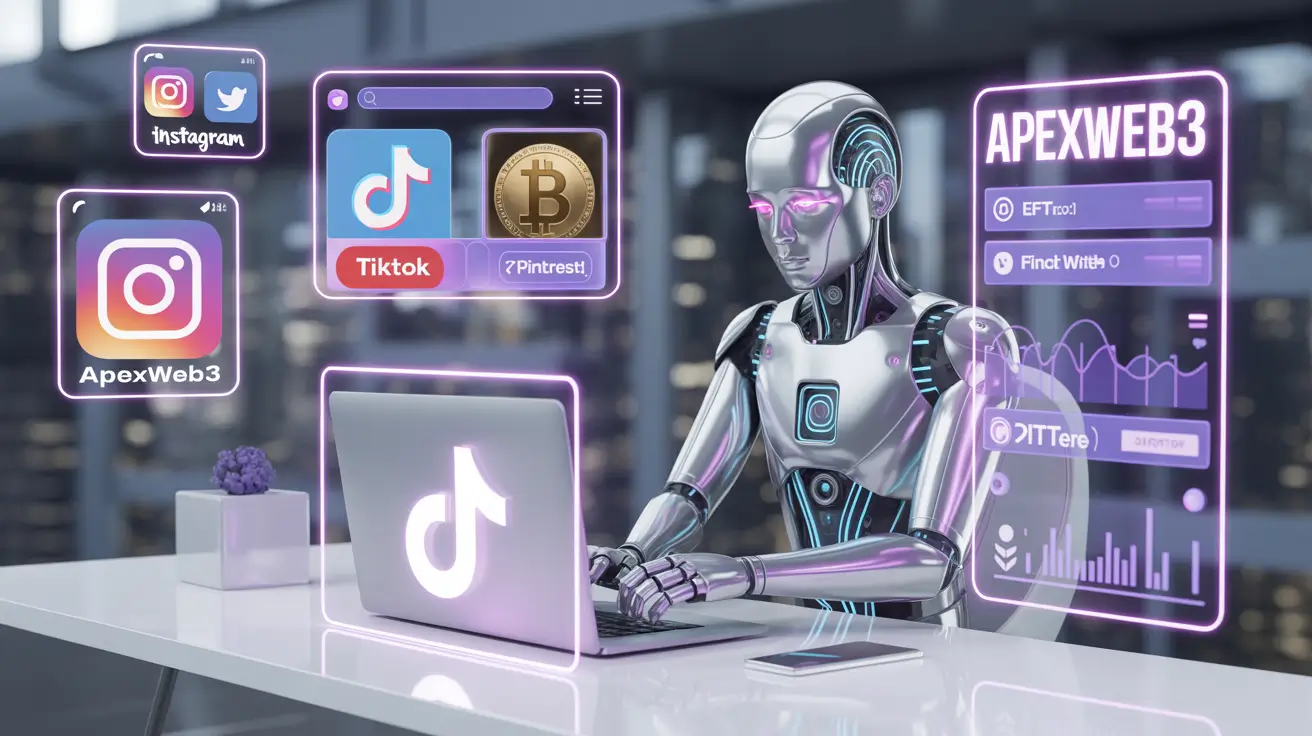Table of Contents
TL;DR: While you were aping into dog coins, the real alpha was building right under your nose. Decentralized AI isn’t just another buzzword; it’s the inevitable evolution that’s about to make OpenAI’s centralized approach look like dial-up internet.
The Degen Confession: I Almost Missed This Play
Two months ago, I was balls-deep in a Twitter Spaces debate about whether AI agents would replace human traders (spoiler: they already are). Some anon dropped a casual alpha bomb: “Bro, centralized AI is ngmi. Decentralized AI is where the real builders are going.”
My first thought? Another buzzword rotation. My second thought, after diving down the rabbit hole for 72 hours straight? Holy shit, this changes everything.
While normies are still debating whether ChatGPT will steal their jobs, the real degens are already positioning themselves in the decentralized AI revolution that’s about to make Big Tech’s stranglehold on artificial intelligence look like a bad joke.
Why Decentralized AI Matters Right Fucking Now
Let’s cut through the noise. Decentralized AI isn’t just about removing middlemen, it’s about fundamentally restructuring how intelligence gets created, distributed, and monetized in our economy.
Think about it: OpenAI burns through billions training GPT models, charges you $20/month for access, and still can’t handle traffic spikes. Meanwhile, decentralized AI projects are building networks where:
- Compute gets distributed across thousands of nodes globally
- Data stays private through federated learning protocols
- Value accrues to token holders instead of VC-backed corporations
- Censorship becomes impossible because no single entity controls the network
The writing’s on the wall, and it’s written in Solidity.
The Alpha Data Drop: Numbers Don’t Lie
Here’s where things get spicy. I’ve been tracking decentralized AI crypto projects for months, and the growth metrics are absolutely bonkers:
| Metric | Traditional AI | Decentralized AI |
|---|---|---|
| Training Costs | $100M+ per model | 60-80% lower through distributed compute |
| Data Privacy | Zero guarantees | Cryptographically secured |
| Network Effects | Centralized moats | Token-incentivized participation |
| Censorship Risk | High (single point of failure) | Practically zero |
SingularityNET alone has processed over 50,000 AI service calls in the past quarter, while Ocean Protocol has facilitated $12M+ in data transactions. These aren’t just proof-of-concepts anymore; they’re scaling.
But here’s the real alpha: Fetch.ai just announced partnerships with BMW and Bosch for autonomous vehicle coordination. When German engineering giants start betting on decentralized AI protocols, you know we’re past the speculation phase.
The decentralized AI alliance forming between projects like Alethea AI, Stability AI, and emerging Layer 1s isn’t just collaboration, it’s preparation for war against centralized incumbents.
How to Position Yourself in This Meta (Without Getting Rekt)
The opportunity is massive, but so is the potential for getting absolutely destroyed if you approach this wrong. Here’s how to play it:
1. Infrastructure Plays Over Application Bets
Don’t chase the sexy AI applications. Focus on the decentralized AI companies building the rails:
- Compute networks (distributed GPU clusters)
- Data marketplaces (privacy-preserving data exchange)
- Model coordination protocols (federated learning infrastructure)
2. Token Economics Matter More Than Technology
The best tech means nothing if the tokenomics are broken. Look for projects where:
- Tokens have clear utility in the network
- Staking mechanisms create long-term alignment
- Burn mechanisms or deflationary pressure exist
- Network effects compound token value
3. Regulatory Arbitrage is Your Friend
While the EU passes AI regulation and the US debates Section 230, decentralized networks operate in a regulatory grey zone that favors innovation. Projects building in crypto-friendly jurisdictions have first-mover advantages that will compound.
The Degenerate Moves (And How Not to Get Wrecked)
I’ve made every mistake in this space so you don’t have to. Here are the traps:
❌ The “AI + Blockchain = Moon” Fallacy
Half the projects in this space are just adding “AI” to their whitepaper for the pump. Real decentralized AI projects have working protocols, measurable network activity, and actual AI/ML talent on the team.
❌ Betting on Single Points of Failure
Even in decentralized AI, some projects still have centralized chokepoints. Look for true protocol-level decentralization, not just distributed marketing.
❌ Ignoring the Talent War
The best engineers and researchers are either at OpenAI/Google or starting their own decentralized protocols. Mid-tier teams won’t survive the coming competition.
Pro tip: Follow the researchers, not the hype. When top-tier AI talent leaves Big Tech for crypto startups, that’s your signal.
The Bull Case That Has Me Convinced
Here’s why I’m rotating heavy into this thesis: decentralized AI solves real problems that centralized solutions can’t address:
- Data sovereignty becomes increasingly valuable as privacy regulations tighten
- Compute costs favor distributed networks over centralized cloud providers
- Censorship resistance matters more as AI becomes politically weaponized
- Network effects in decentralized protocols compound faster than traditional platforms
The Web3 AI agents revolution isn’t coming, it’s already here. We’re just in the infrastructure phase before the applications explode.
Alpha Summary: Position Now or Stay Poor
Decentralized AI isn’t a rotation, it’s an evolution. While retail chases memecoins and institutions debate AI regulation, the real builders are creating the infrastructure that will power the next decade of artificial intelligence.
The thesis is simple: centralized AI companies are optimizing for quarterly earnings, while decentralized AI crypto projects are optimizing for network effects and long-term value accrual. Guess which approach wins in a 10-year timeframe?
My prediction: By 2026, using centralized AI will feel as outdated as using Internet Explorer. The question isn’t whether decentralized AI will win, it’s whether you’ll position yourself before the rest of the market figures it out.
The infrastructure is being built now. The protocols are launching now. The talent is moving now.
Don’t be the person who understood Web3 and AI convergence but waited for “confirmation” from mainstream media.
Ready to dive deeper into the decentralized AI rabbit hole? Drop your hottest takes in the comments below and make sure you’re subscribed to Apex Drops for more alpha that your timeline isn’t ready for.
What’s your favorite decentralized AI play right now? Are you bullish on compute networks or data marketplaces? Let me know if I read every comment.





